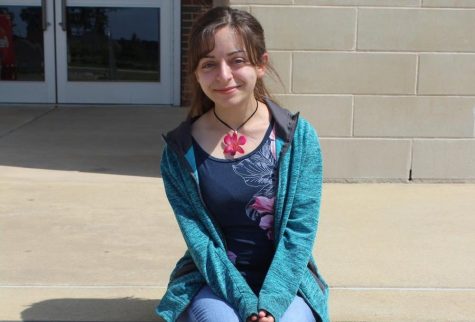New class schedule implemented for 2018-19 school year
Students will follow this new schedule for classes next school year.
April 2, 2018
As the year comes to a close, many students are beginning to sign up for classes, but a new schedule has been put underway for the 2018-19 school year, bringing with it new challenges and benefits for students and teachers.
The leadership team at Oxford High School has been working on this new schedule since September. The schedule presents normal 48 minute class periods for first, second, fifth and sixth periods and 94 minute double block classes for third and fourth periods. According to Principal Bradley Roberson, this extra time allows for students to take “more duel enrollment, AP and career based educational” classes so students will be able to gain Carnegie units faster.
“What we’re wanting to do is to give us every opportunity to where time is not the constant in the learning equation,” Roberson said. “When you have some classes every 50 minutes, and you have some classes that are 94 minutes in length. We’re hoping to eliminate some of the issues of time not being enough for students to master content.”
Some students showed some concerns with this new scheduling format however. Among these students was sophomore Zuzu Al-Sherri.
“Students will have an easier ability to graduate, which in some ways can prove to be detrimental because there’s a level of maturity that comes with aging,” Al-Sherri said. “They’re accelerating us out of [OHS], then a lot of students will take that opportunity and they’re not aware of the detriment that will come with that. You’re not prepared for the real world because, again, this level of maturity hasn’t been reached yet.”
Some are concerned that with the longer class periods, students may not be able to retain their focus in class for the new 94 minute class. Assistant Principal Chandler Gray remarks that the staff is prepared for that, and this longer class period is just like what is presented in college.
“That’s the responsibility of us as a district, to prepare our teachers to teach on a block schedule. We can’t lecture for an hour and a half now, so I think the benefit people will see when they get in that class, and we train our teachers to do this is to not only have some lecture but to also have some activities, some projects,” Gray said. “I think it’ll just be a different learning experience. I don’t think you’ll necessarily feel rushed, you’ll just have multiple ways to learn.”
The opportunity of having senior dismissal and zero period have been questioned by many seniors and other students. According to Roberson, this new schedule will not affect zero period, but seniors must meet a few more requirements in their classes to earn dismissal.
“We’re going to propose that a senior can take three of the five classes first semester and two of the five classes second semester,” Roberson said, “meaning that they would have the five classes just like they do now, and they would be getting out at approximately the same time they do now as well. They could possibly get out earlier.”
An A day B day schedule was considered for a while, but according to Gray, teachers were concerned about a snow day taking out a Thursday, meaning that the student would be out from that Tuesday when they last went to class until that next Tuesday without instruction.
“I’ve talked to students over a wide range of subjects, taking a wide range of courses, and they said they would enjoy an ABAB schedule more,” Al-Sherri said. “They would learn more from it because although classes are longer, you have that space interval between it, which studies from Dartmouth University show that space intervals of learning are better for retention levels rather than massing and grouping it together, which is what this new schedule they’re implementing is doing.”
English classes may possibly be double blocked, but it would not serve as a requirement according to Gray. This schedule should be in effect for the next five years to get accurate information on how it affects student education.
“Let’s give this schedule an opportunity,” Roberson said. “We’re going to analyze the data as we’re moving forward. We really do think this is what’s going to be best for our kids.”




